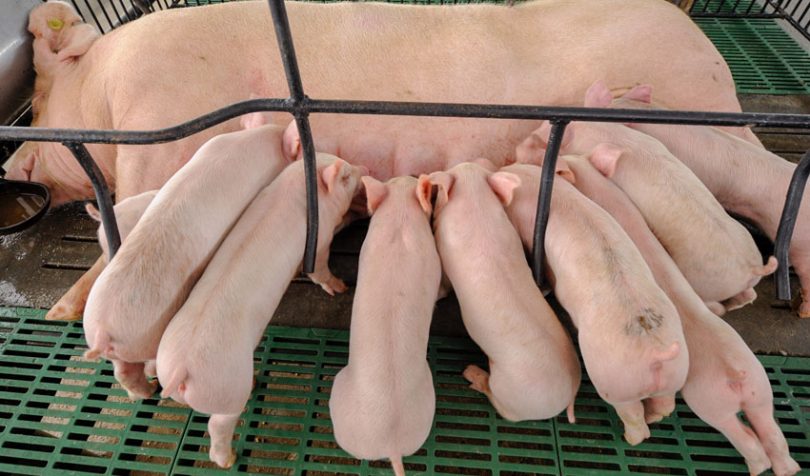Yesterday U.S. startup Ripe.io announced that it’s partnering with the National Pork Board for a blockchain pilot. The test aims to enable pork producers to monitor and evaluate sustainability practices.
“The growing demand across the entire food supply chain – including end consumers – is to ‘Know Your Food.’ The ripe.io platform generates powerful levels of transparency and trust by enabling collaboration and consensus of data and activities within food systems,” said Raja Ramachandran, co-founder of ripe.io.
He continued: “Through blockchain, customers like the National Pork Board can enable its organization and members to create shared, immutable trusted records that address critical food issues such as sustainability, quality, traceability, waste and fraud.”
In 2008, key pork industry bodies launched the We Care initiative to encourage responsible practices in all areas of farming. The program covers food safety, animal well-being, public health protection, safeguarding natural resources, ethical work practices and contributing to the community.
So a key part of the ripe.io test is to benchmark We Care practices. As with most food traceability projects, it will also record certifications on the blockchain. The blockchain is permissioned so those with appropriate access can see the certificates. Ripe.io also states that “the data remains anonymous in order to create a benchmark indicator for each ethical principle”.
According to the National Pork Board, within the last 50 years pig farming has reduced the amount of land used by 75 percent, uses 25 percent less water, and 7 percent less energy. Dr. Brett Kaysen, assistant VP of sustainability at the National Pork Board, clarified his expectation of the project to “record proof points through a system that can benchmark performance while increasing transparency of the entire pork value chain.”
Other blockchain pork initiatives
There are numerous blockchain food traceability initiatives, and pork is a reasonably popular area. In 2016 another startup, TE-FOOD launched a pig traceability solution in Vietnam which initially didn’t use a blockchain. Seven months ago it TE-FOOD went live on a blockchain so that consumers could use their smartphones to scan a QR code on pork packaging to get more information.
The solution was used on 18,000 pigs with plans for French retailer Auchan to expand the pork tracking to Spain. Two weeks ago TE-FOOD went a step further by offering free traceability to help to contain African Swine Fever.
A handful of startups stand out when it comes to food traceability. Ripe in the US, Provenance in Europe, and TE-FOOD in Europe and Asia. Last year Ripe secured $2 million in seed funding from Maersk Ventures and Relish Works.
They’re up against steep competition from large players like the IBM Food Trust, SAP, FoodLogiQ Labs and iTradeNetwork.







